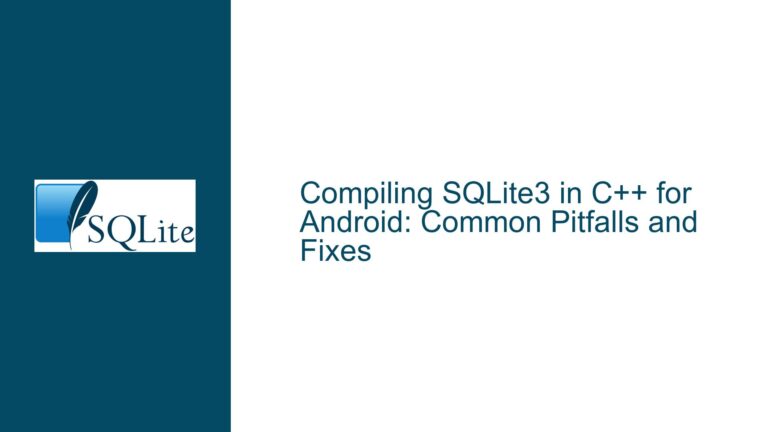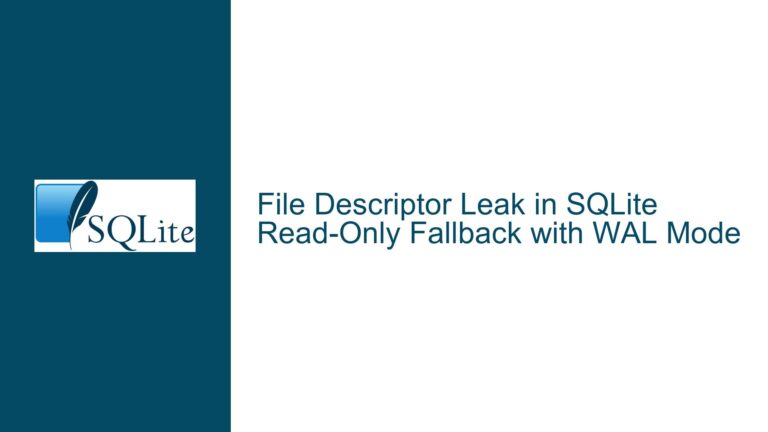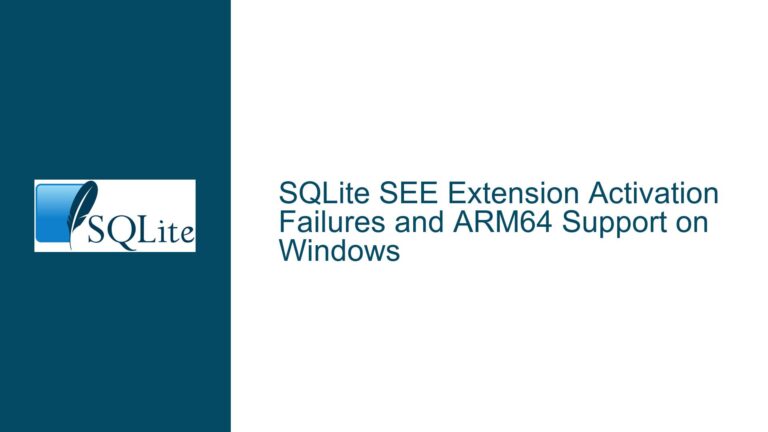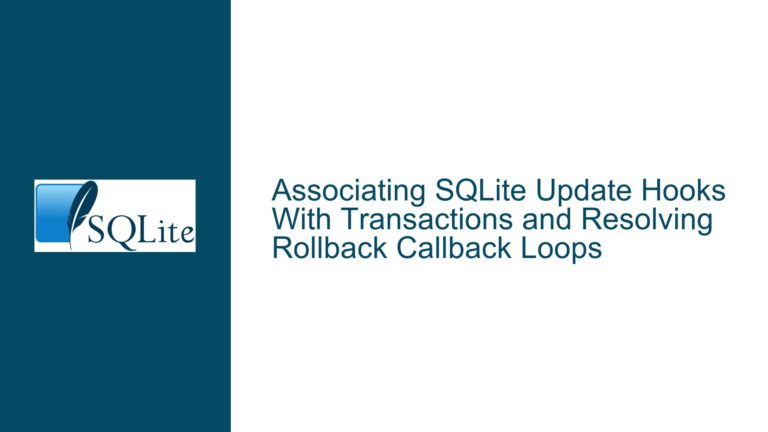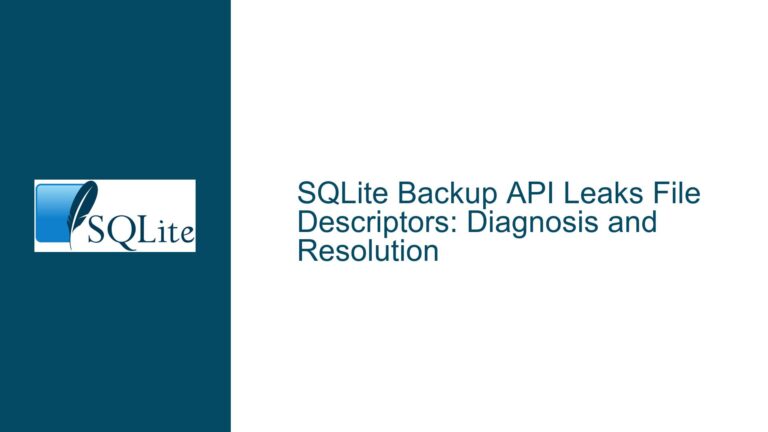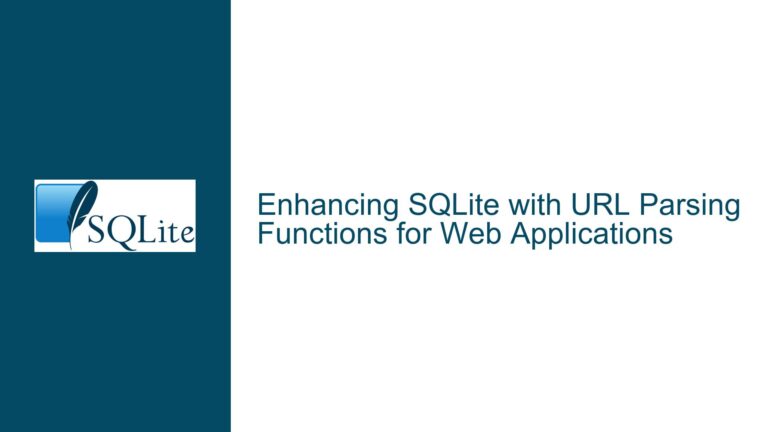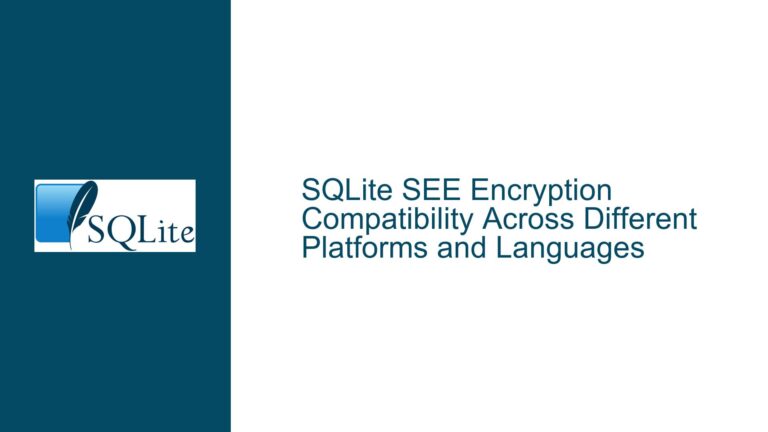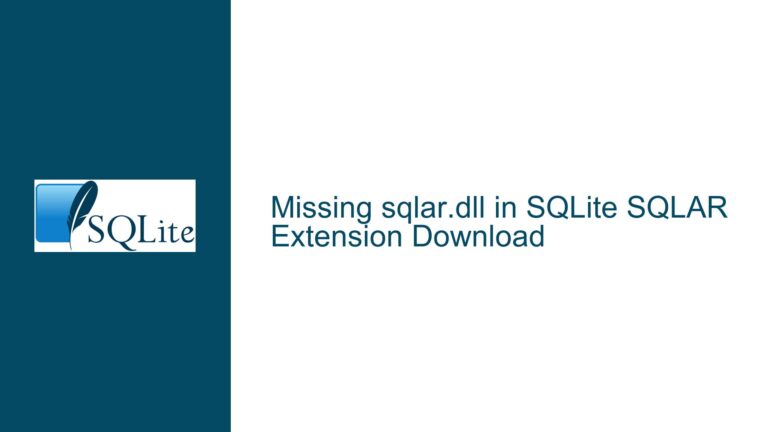Compiling SQLite3 in C++ for Android: Common Pitfalls and Fixes
Issue Overview: Compilation Hangs When Using g++ for SQLite3 in C++ When integrating SQLite3 into a C++ project, particularly in an Android development environment using Anacode IDE, developers often encounter a scenario where the compilation process hangs indefinitely. This issue is primarily observed when attempting to compile SQLite3’s C source code (sqlite3.c) using the g++…
